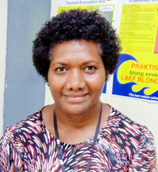
Building Resilience During the COVID-19 Crisis is a virtual speaker series organized by the Global Facility for Disaster Reduction and Recovery (GFDRR).
Session 2 | Managing Tropical Storms During COVID-19: Early Lessons Learned
July 8, 2020 | 8:00 am EDT | Virtual
As the COVID-19 pandemic reverberates around the globe, we are reminded that disasters have not been staying home and will need managed in a new and more challenging environment. The current global health crisis has been a stress test for emergency preparedness and response systems that are in place, and the governments are learning where those systems have strengths, and where they need to be improved and adapted.
This event will be the second session of GFDRR’s Building Resilience During the Covid-19 Crisis speaker series. We will be hearing what officials working on the front lines in India, Japan, Vanuatu and the Caribbean have learned so far about responding to and preparing for tropical cyclones during COVID-19, and what advice they have for others who are facing similar challenges.
Speakers

Esline Garaebiti, Director-General of the Vanuatu Ministry of Climate Change Adaptation, Meteorology, Geo-Hazards, Environment, Energy and Disaster Management
Ms. Garaebiti was appointed as Director-General in February 2020. She had been the Director of the Vanuatu Meteorology and Geo-Hazards Department (VMGD) since 2019, and was previously Manager of VMGD’s Geohazards Division. She is one of three female Directors-General of Ministries in the Government of Vanuatu.
Kamal Kishore, a member of India’s National Disaster Management Authority (NDMA) and co-chair of GFDRR
Mr. Kishore has worked on disaster risk reduction and recovery issues for over 22 years at the local, national, regional and global levels. Prior to NDMA, he worked with the United Nations Development Programme (UNDP) for nearly 13 years in New Delhi, Geneva, and New York. He led global advocacy campaigns to address disaster risk reduction concerns in the UN’s Sustainable Development Goals and the post-2015 development agenda. He has been the co-chair of GFDRR for the second consecutive year.
Dr. Muneyoshi Numada, Associate Professor, Institute of Industrial Science, the University of Tokyo
Dr. Numada’s primary research is “Disaster Management Process Engineering”. He has identified 47 activities after a disaster which could be used for the development of comprehensive management plans, and based on this, pioneered a Business Operating Support System (BOSS). He applied the BOSS to the municipalities in Japan. He piloted an international Standard Operation Procedure together with the Indonesian National Disaster Management Agency, Bangladesh Disaster Prevention Bureau, Myanmar Disaster Management Bureau and the University of Hawaii. He also created the university’s Disaster Management Training Center (DMTC) which opened in 2018.
Elizabeth Riley, Executive Director, Caribbean Disaster Emergency Management Agency (CDEMA)
Ms. Riley has over 20 years of experience in the area of disaster management at the regional and international levels. She is currently leading the coordination of the region’s response to the COVID-19 pandemic. In her previous role as Deputy, she was responsible for CDEMA’s technical programming, and provided strategic guidance in preparedness and response, mitigation, recovery, education and training, and information management. She also led coordination of regional response to major hurricanes since 2004.
Session 1 | Learning from Multi-Hazard Early Warning Systems to Respond to Pandemics
June 23, 2020 | 8.30 am – 9:30 am (EDT) | Virtual
One of the lessons from the COVID-19 pandemic is the need to understand the vulnerability of individuals, communities and societies in order to have reliable, targeted guidance and early warnings. Meteorology and hydrology are making good progress in this direction, so what can we learn from those experiences? This event will be a discussion on the prospects for applying Multi-Hazard Impact-based Early Warning Systems (MHIEWS) to pandemics, drawing on insights about what works well when communicating information about risk. View the companion report here.
Speaker:

Dr. David Rogers, Lead Meteorological Consultant, GFDRR
Dr. Rogers’ career in meteorology and oceanography spans more than four decades. He has authored over 100 papers and books on meteorology, oceanography and related fields. He has held numerous senior appointments including Chief Executive of the UK Met Office, Vice President of Science Applications International Corporation, Director of the Office of Weather and Air Quality Research at the National Oceanic and Atmospheric Administration, Director of Physical Oceanography at Scripps Institution of Oceanography, Associate Director of the California Space Institute and President of the Health and Climate Foundation, which he co-founded.-
Discussants:

Catalina Jaime, Senior Risk Adviser, Red Cross Red Crescent Climate Centre
Catalina coordinates the global strategic development of Forecast-based Financing and the technical support for the design and implementation of the global anticipatory funding mechanism of the IFRC, along with technical advice to Early Action projects at global level. She is the knowledge manager of the Science for Humanitarian Emergencies & Resilience program and is currently working on her PhD at the University of Twente on Early Warning and Early Action in conflict-affected settings.

Madeleine Thomson, Interim Head, Our Planet, Our Health, Senior Science Lead, Climate Change and Health, Wellcome Trust
Madeleine previously held senior research positions at the International Research Institute for Climate and Society (IRI) and the Mailman School of Public Health at Columbia University. She also served as director of the IRI/PAHO-WHO Collaborating Centre on Early Warning Systems for Malaria and Other Climate-Sensitive Diseases. Madeleine originally trained as a field entomologist.
Dr. Will Lang, Head of Civil Contingencies Services, UK Met Office
After joining the Met Office in 1998, Dr. Lang trained as a forecaster in various operational roles, eventually spending several years as Chief Operational Meteorologist. Currently, he has responsibility for the UK’s weather warnings system as part of the Public Weather Service. He also leads the Met Office’s team of Civil Contingencies Advisors, giving support to UK government and resilience services around severe weather.
